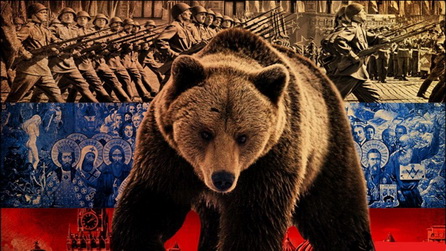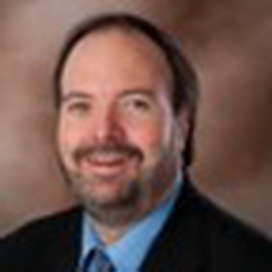|
Thinking Clearly About Russia By Daniel J. Mahoney October 30, 2017

It is fair to say that the American Left as whole was “soft” on the Soviet Union during the last 25 years of the Cold War. It’s old-time pro-Communism largely was a thing of the past or had been transferred to more exotic instantiations of the Communist idea from Havana in the Caribbean to Beijing and Hanoi in east Asia. Castro and Mao were the new heroes, followed for some by the Sandinistas and Hugo Chavez. Russia was too gray and bureaucratic under Leonid Brezhnev to sustain ideological loyalty or revolutionary passion. But a diffused “moral equivalence” dominated the thinking of left-liberal elites, one that gave the enemies of the United States a certain benefit of the doubt. The American Right displayed much more moral clarity about Soviet Communism but it had a tendency, as Aleksandr Solzhenitsyn warned in the 1970s, to conflate Russia and the Soviet Union and to fail to see the Russian people as the first and principal victims (along with the Ukrainians) of Communist totalitarianism. For some on the Right, “eternal Russia” was the real enemy and was forever destined to be an “Asiatic despotism” that threatened the peace and security of Europe and the world. Communist ideology, in this view, contrary to all evidence, had little to do with the mountains of corpses that accumulated during Leninist-Stalinist rule (1917-1953). In this highly questionable approach to understanding Russia, the committed ideologue and devoted Leninist Stalin was really Ivan the Terrible all over again. Russia, in one form or another, was the enemy, despite the fact that Russia and the United States had generally good relations in the years before the Bolshevik Revolution of 1917. Russia came out “from under the rubble” of Communist totalitarianism in the worst possible way during the 1990s. The old Communist apparatchiks manipulated privatization and made themselves the uncontested owners of the country. Teachers were not paid for years and pensioners could not count on the meager payments that protected them from outright penury and hunger. Life expectancy in an urbanized, industrialized, and educated country fell to the level of Bangladesh—58 years of age! Boris Yeltsin empowered thieving oligarchs and with their help manipulated the 1996 presidential election to win reelection against the unrepentant Stalinist, Gennady Zyuganov, an unsavory choice for honest and decent Russians, to say the least. Yet, Western political officials, and commentators across the political spectrum, with few exceptions, lauded the triumph of Russian “democracy” and “capitalism” in the 1990s. Yes, Russians enjoyed new and welcome freedoms. But those freedoms were accompanied by kleptocracy and criminality on a massive scale. Yeltsin and his minions discredited “democracy” in Russia for the foreseeable future. The very survival of Russia as a discrete and self-respecting nation and people was at stake, and the West was oblivious to this profound moral and political challenge to Russian nationhood. Abroad, Russia was humiliated (in Serbia and elsewhere) and was told to accept its subordinate place in an American-dominated international order, an order of “free trade” and “human rights” understood in ways that undercut national sovereignty and traditional conceptions of moral and religious responsibility (Russians, for example, who are still marked by traditional Christian morality, do not want to have the LGBT agenda shoved down their throats). Putin promised and largely delivered on a Russian restoration—and not a neo-Soviet regime, as many Westerners believe. As the great contemporary historian Walter Laqueur points out in his 2015 book, Putinism: Russia and Its Future with the West, Putin’s is a conservative and populist regime that repudiates both communist totalitarianism and the kind of fascism heralded by extreme Russian nationalists. In his speeches he applauds Christian anti-totalitarian thinkers such as Vladimir Soloviev, Ivan Ilyin, and Nikolai Berdyaev who defended moderation and the rule of law. He seldom appeals to major communist figures. It is true that those around Putin sometimes hesitate to tell the whole truth about the Soviet experience—some in his large and variegated coalition would prefer for ‘“nothing bad to be said about Russia.” Putin himself told Oliver Stone in a recent interview that some in the West go too far in “demonizing” Stalin in order to discredit Russia. This is most unfortunate. But there is much countervailing evidence to report—evidence that is largely ignored in the West. As the Russianist Paul Robinson has reported, Putin recently attended the reopening of the Sretensky monastery, a monastery dedicated to the thousands of “new martyrs,” canonized by the Orthodox Church, who had been killed by the Communist regime. This had great symbolic and moral significance and hardly suggests that Putin is committed to rehabilitating the Soviet Union. Earlier, in 2007, he visited a memorial at Butovo cemetery outside of Moscow, where at least 20,000 victims of the Soviets were shot and buried. Priests pray for the repose of their souls 24-hours a day. And in 2015, the Russian leader signed an edict authorizing what the BBC has called the “first ever national memorial to the millions deported, imprisoned, and executed in Soviet times” (I am grateful once again to Paul Robinson for this report). This “Wall of Grief,” a “vast bronze sculpture designed by sculpture Georgy Frangulyan,” will be dedicated in today in Moscow, as October 30th is the day officially selected to honor the memory of the victims of Communist repression. If that weren’t enough, Putin and Prime Minister Dmitri Medvedev in 2010 approved the required reading in Russian high schools of Solzhenitsyn’s magisterial The Gulag Archipelago, the definitive indictment of Communism and all its works. A 510-page abridgment of that work, prepared by Solzhenitsyn’s widow Natalia Solzhenitsyna at the great writer’s request, is widely taught in Russian high school literature courses, as well as in some history courses, too. This is a victory for truth and transparency, and a deadly blow to the ideological lie. Putin’s is a moderately authoritarian regime, not a real democracy, but by no means an ideological or totalitarian regime. There is too much corruption and Putin has undoubtedly stayed in power too long, thus crowding out authentic political life. But he is not a fascist, a Stalinist, or a Leninist. His regime owes much to an incoherent mixture, as the journalist Christopher Caldwell puts it, of Christian Orthodoxy and Machiavellian realism. Putin thinks like a 19th century statesman and not like a 20th century ideologue, even as he pays genuine tribute to Russia’s religious traditions. And both the American Left and neoconservative Right would see things more clearly if they stopped demonizing Putin and displaying such unrelieved hostility to the Russian nation and people. The beginning of wisdom is to recognize that Russia is infinitely freer today than it ever was under Soviet rule. one is not obliged to honor its present regime, but it would help to stop seeing Russia as the hereditary enemy of the human race. About the Author: Daniel J. Mahoney

Daniel J. Mahoney holds the Augustine Chair in Distinguished Scholarship at Assumption College. He is the author of many books, including “The Other Solzhenitsyn: Telling the Truth About a Misunderstood Writer and Thinker” (2014).
Original: https://amgreatness.com/2017/10/30/thinking-clearly-about-russia/
Up
|